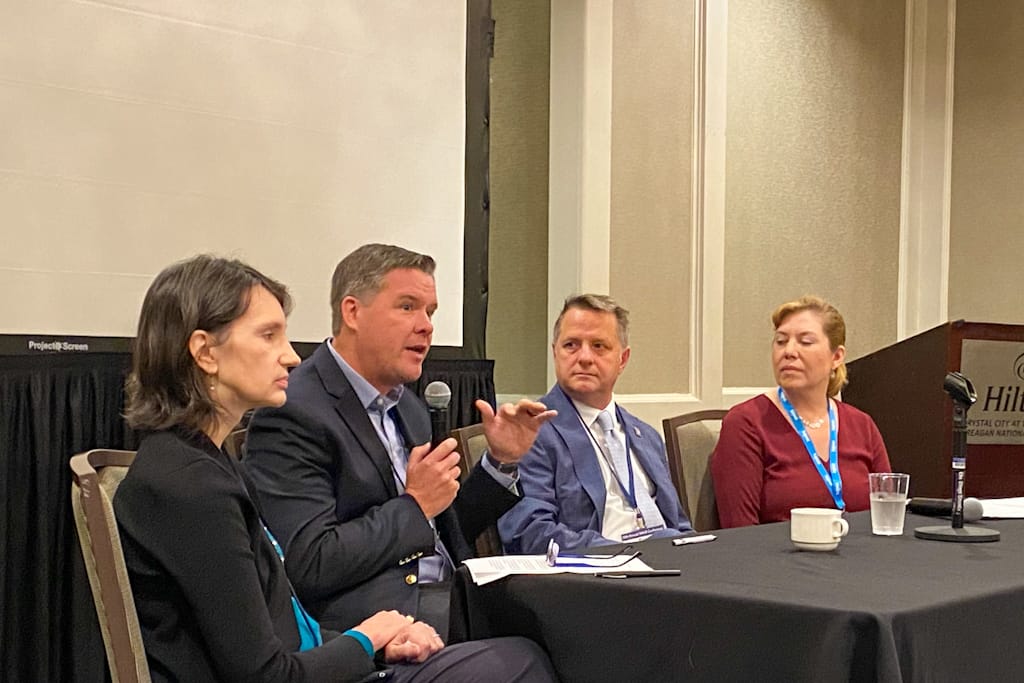Lines Are Sharpening Over Who Drives the Future of Universal Service: Congress or Broadband Providers?
Big communications companies want Congress to tax telecom, while many others want higher fees on broadband service.

CRYSTAL CITY, Va., October 14, 2022 – Should contributions to the Universal Service Fund originate from Congress or from fees paid by communications companies to an agency responsible to the Federal Communications Commission? A panel of experts speaking Friday at AnchorNets 2022 debated this issue.
The Universal Service Fund, created in 1997 to improve telecommunications connectivity nationwide, is funded primarily by voice-based services. In recent years, voice-based subscriptions have substantially dropped, creating a revenue crisis and leaving remaining voice-based customers to foot a climbing per-person USF bill.
To rectify this imbalance, industry players have proposed a variety of new funding sources. The two core options are direct taxation by Congress, or by broadening the base of the USF.
The latter option would require broadband providers to contribute to levies collected by the Universal Service Administrative Company, a non-profit entity accountable to the FCC.
Urging Need for FCC Action on Universal Service Fund, Expert Says Congress Too Slow
Speaking at the Friday conference of the Schools, Health and Library Broadband Coalition, Greg Guice, director of government affairs at Public Knowledge, argued that the FCC has the legal authority to require broadband service providers to contribute to the USF.
“The language of the statute says every carrier shall contribute and any other provider of telecommunications that the Commission decides may contribute to Universal Service,” he said.
Angie Kronenberg, chief advocate and general counsel at industry trade group INCOMPAS, said Congress shouldn’t be relied upon for intervention: “It is very helpful when Congress recognizes that there is a problem and is willing to appropriate, but that is not a sustainable, predictable model.”
Petition Challenges Constitutionality of Roles FCC, USAC Play in Universal Service Fund
The USF has of late made substantial investments in broadband projects, and many industry experts say broadband services should be required to contribute thereto. In August, however, the FCC declined to unilaterally reform the fund’s contribution system and asked Congress to review the matter.
“On review, there is significant ambiguity in the record regarding the scope of the Commission’s existing authority to broaden the base of contributors,” the Commission’s report stated.
Alex Minard, vice president and state legislative counsel at NCTA – The Internet and Television Association, suggested Congress should be the driver of USF reform.
Policy Groups Want Bigger Contribution Base to Shore Up the Future of the Universal Service Fund
“Maybe the FCC does have the legal authority – maybe – to include broadband revenues,” said Minard. “If we’re going to…newly tax such a significant part of the economy, maybe it’s Congress that should be making this decision, and not an independent federal regulatory agency.”
Minard also argued the need for USF reform is less urgent than some believe. “It has been in crisis for 20 years,” he said. “What’s a little bit longer?”








